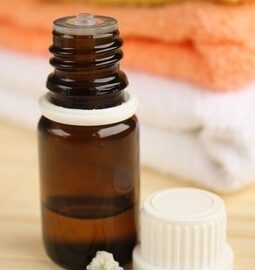
We are often asked about home remedies for moles and herbal mole removal. We’re in favor of home remedies when safe, affordable, and effective home remedies are available. They allow people to take control of their own health, to receive the care they need at their convenience and in the privacy of their own homes, and to receive affordable health care. At the same time, we’re concerned about the amount of misinformation out there and about the many home remedies for sale that don’t really work. We don’t want you to waste your time or money on ineffective remedies and we definitely don’t want you to try any home remedies that might be harmful or dangerous.
Note that there has not been a great deal of scientific research into the subject of home remedies to remove moles, so while we looked for scientific evidence regarding these, we weren’t always able to find the kind of information we were looking for. We’ll tell you what we were able to find about what works and what doesn’t, though.
Commonly-Used Home Remedies for Moles
While people use a wide variety of home remedies to remove moles, here are some of the more commonly-used and oft-recommended ones. For more information about alternatives to surgical mole removal, we suggest talking to a physician that is also knowledgeable about alternative medicine. Since not all physicians know much about or are fans of, alternative medicine, you may need to do some searching to find such a doctor in your area.
Apple Cider Vinegar – A quick search of the internet shows many recommendations for the use of apple cider vinegar to remove moles. Apple cider vinegar is frequently touted as a remedy for all sorts of other conditions, as well. We found no evidence it will do anything for moles, though.
Grape Seed Extract – According to the University of Maryland Medical Center, grape seed extract is high in antioxidants, and taking it orally greatly increases the level of antioxidants in the blood. Many people believe it helps repair skin damage and may cure a number of disorders of the skin. Antioxidants may even help protect against skin cancer (melanoma). Moles aren’t caused by damage to the skin, though; they are naturally occurring clusters of highly pigmented skin cells. We found no evidence that antioxidants (which are found in a variety of fruits and vegetables, by the way, not only in grape seed extract) in general or grape seed extract, in particular, will remove moles.

Tea Tree Oil – This is an essential oil extracted from the leaves of an Australian tree. It is believed to have antibacterial, antiviral, and antifungal properties and it has been shown to be effective against a number of skin conditions. However, moles are not caused by bacteria, viruses, or fungi, and there is no evidence that tea tree oil will remove moles.
Thuja Occidentalis – This is a homeopathic remedy made from the leaves of the thuja tree. Homeopathy has a long history of treating many different types of disorders. It’s used to treat a number of skin problems, including infections, warts, and even cold sores. It can be taken orally or applied to the skin. This is one of the few home remedies for moles we think may actually work. We wish there was more scientific research to support the use of homeopathic remedies to treat moles, but even without all the studies we’d like to see, we feel the empirical evidence is strong.
You can read more about how to remove moles yourself here, as well as what not to do to remove a mole yourself.
Our Preferred Home Remedy for Moles
Of all the home remedies for moles, the one we like best is H-Moles Formula. Its unique combination of natural essential oils and homeopathic medicines – including thuja occidentalis – work together to remove moles gently and painlessly. It’s affordable, easy to use at home, and doesn’t require a prescription. Most importantly, it works! People who’ve tried it rate it 4.5 stars out of five stars. To learn more about H-Moles Formula and find out why people like it so much, just follow the link.
